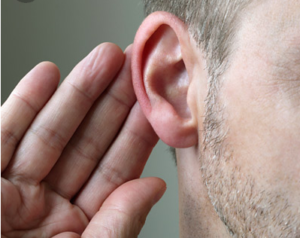Could a common cold affect your hearing
Tis the season to be sick, achy and congested.
It’s that time of year where many of us carry a pack of tissues in our pocket and constantly smell of vapour rub and cough sweets as we attempt to rid ourselves of the common cold.
You might feel terrible for a week or so as you soldier on, sniffing and sneezing and trying to sleep with blocked sinuses but in the end, the cold clears up and you’re back to your normal self. Sometimes though, it can have a lasting effect.
Even the common cold can effect your hearing!
We expect to catch colds every year but many of us do not consider just how seriously we should take them. They are viruses, after all, and can quickly develop into something quite serious, especially if our health is already not at its best.
Fluid buildup from a cold can have a lasting effect as it develops and presses on your inner ear and damages the fine hairs or nerves in the cochlea – resulting in permanent or partial hearing loss if left for too long. This is called sensorineural hearing loss and is often missed by GPs, as musician and composer Michael Berkeley discovered after suffering from a cold and hearing loss and was repeatedly told it would clear of its own accord.
infections are also another common development when suffering with a cold and are usually treated easily with antibiotics. But it is important that if you are poorly and start experiencing any of the symptoms below that you go to your doctor immediately to prevent any permanent damage being done:
- Dizziness
- Earache
- Feeling of pressure in the head
- Loss of hearing in one or both ears or muffled hearing
If you are experiencing these symptoms as a side effect of a cold, it won’t hurt to pay a visit to one of our shops to have a free hearing test completed and put your mind at rest. Read More.
Sensorineural Hearing Loss
Muffled hearing can be relatively common when you have a cold or the flu, but occasionally auditory issues can become more serious. “Sensorineural hearing loss is a type of hearing loss that stems from the inability to convert vibrations in the inner ear into nerve signals that travel to the brain,” says Amesh A. Adalja, MD, adjunct instructor in the division of infectious diseases and clinical assistant professor in the departments of critical care and emergency medicine at the University of Pittsburgh Medical Center.
Symptoms can include swelling, congestion, and pressure. Much less often, hearing loss can occur. Treatment sometimes consists of oral steroids, though more research needs to be done on their effectiveness. Many people simply recover on their own as their cold or flu symptoms improve.
However, any sort of hearing loss should be a red flag to see a health care provider. Learn more.